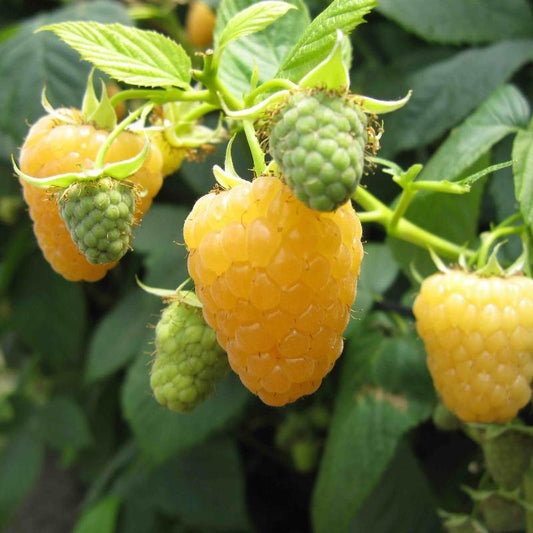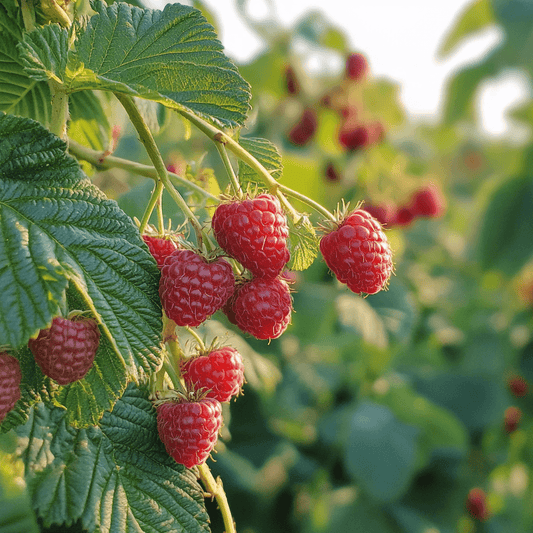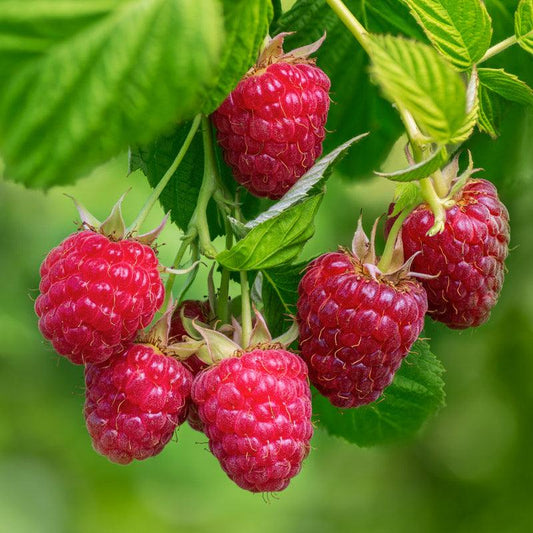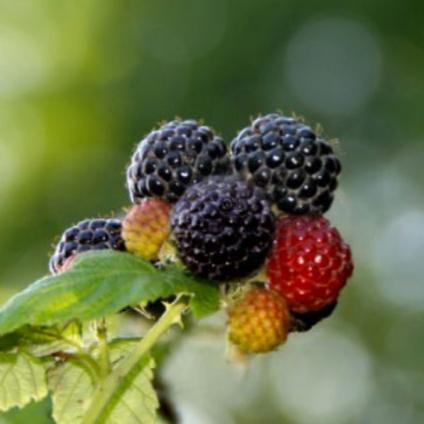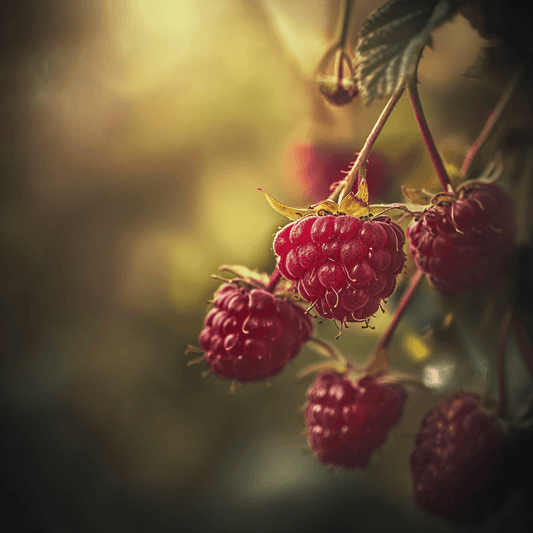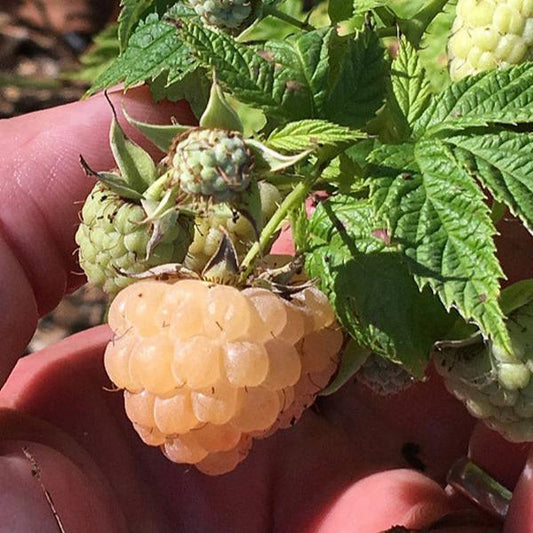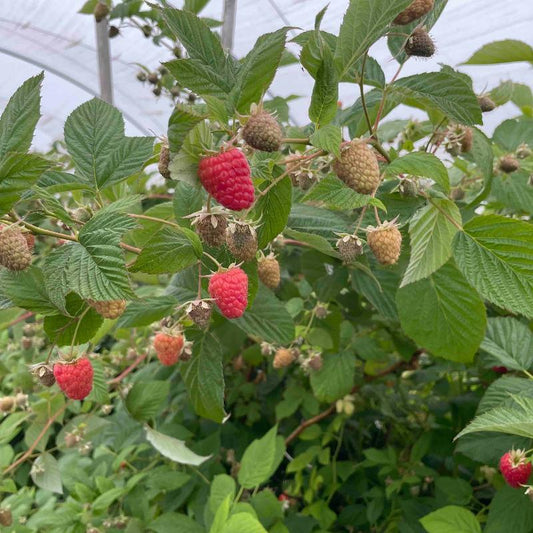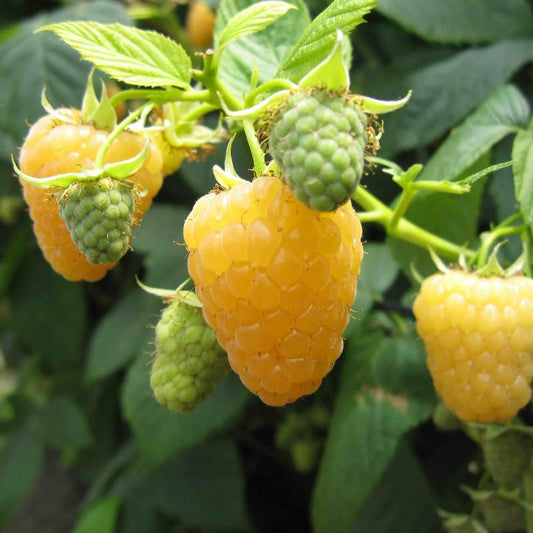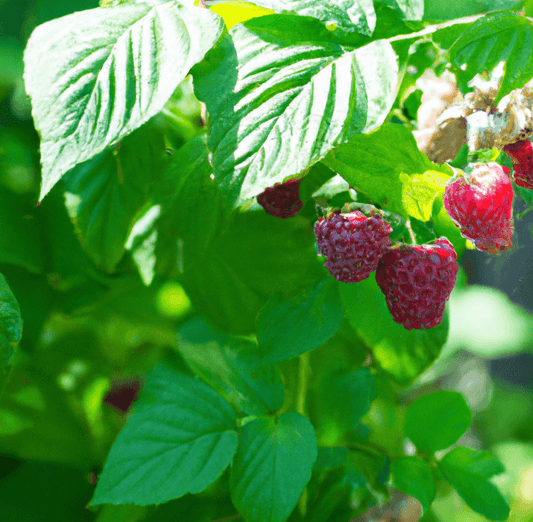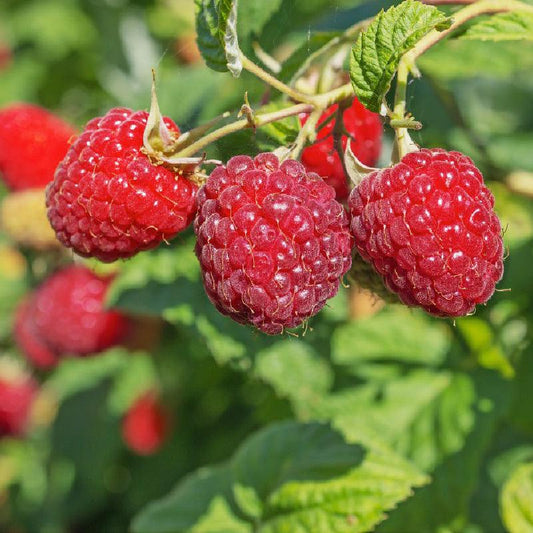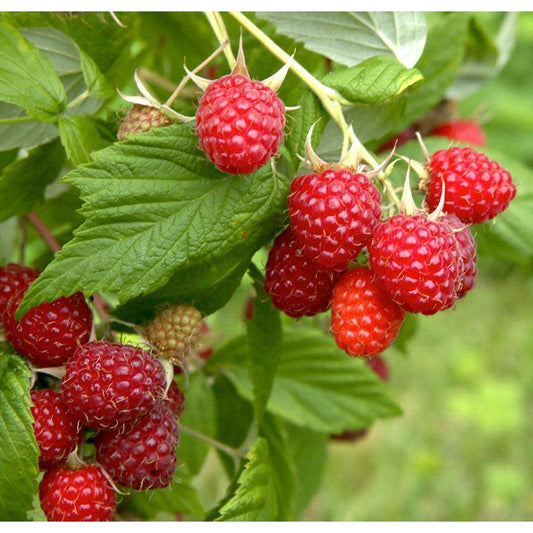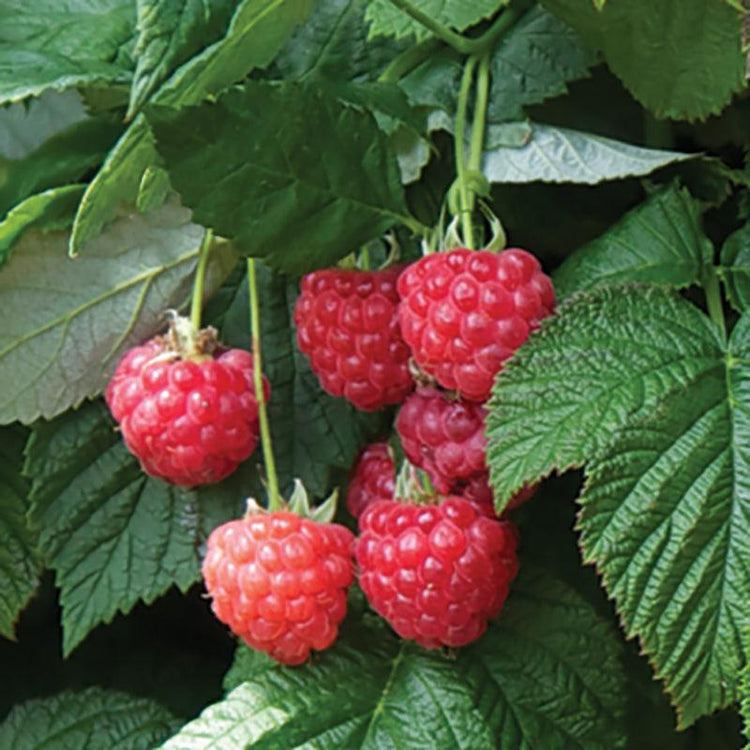
Raspberry Plants & Bushes for Sale — Organic & Conventional Varieties
Discover our diverse selection of raspberry plants for sale, including both organic raspberry plants and conventional varieties, ideal for gardeners looking for a bountiful harvest of fresh, delicious berries. Choose from popular red raspberries, golden raspberries, and black raspberries, with options suited for every garden.
Selecting the Perfect Raspberry Bush for Your Garden
Our raspberry bushes for sale thrive best in drained soil and require full sun for optimal growth and high yields. Whether you prefer certified organic raspberry bushes or conventional plants, proper raspberry planting and soil preparation are essential for healthy, productive plants.
Explore soil and watering advice in our guides on soil preparation and requirements for raspberries and watering and fertilization practices.
Raspberry Varieties: Summer Bearing and Everbearing
Our inventory includes both summer bearing and everbearing raspberries (also known as fall bearing):
- Summer bearing raspberries fruit on two-year-old canes, typically ripening in early to mid-summer. These bearing raspberry types benefit from pruning and are often grown using the hill method.
- Everbearing raspberries produce two crops per season—once in summer and again in early fall—allowing an extended harvest window.
Learn more about pruning and care with our raspberry gardening guide and pruning techniques.
Why Choose Our Raspberry Bushes?
- A wide range of varieties including disease resistant types
- Both organic raspberry bushes and conventional options available
- Includes popular black raspberry varieties, red raspberries, and golden raspberries
- Suitable for various climates with appropriate soil type and drained soil
- Manageable bush sizes perfect for gardeners with small hands or limited space
For more on growing organic raspberries, see our guide on organic raspberry bushes.
Planting and Spacing Tips for Best Results
- Plant raspberry bushes when dormant in late winter to early spring
- Space plants 2 to 3 feet apart within rows, with 8 to 10 feet between rows for proper airflow
- Ensure well-drained soil to prevent root diseases and encourage vigorous growth
Find detailed planting instructions in our guides on how to plant cane berries and optimal planting times.
Enjoy Fresh, Homegrown Raspberries
Our raspberry bushes deliver sweet, juicy berries you can enjoy fresh or use in jams, pies, and more. Expect high yields and a bountiful harvest with proper care season after season. For harvest tips, check out our raspberry harvesting guide.
Additional Resources
Shop our premium raspberry bushes for sale today, featuring a broad selection of organic and conventional varieties tailored for both novice and experienced gardeners seeking flavorful, homegrown raspberries.
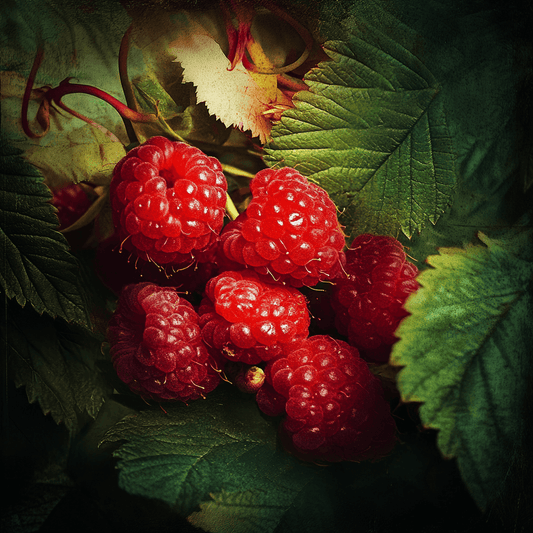 Sold out
Sold out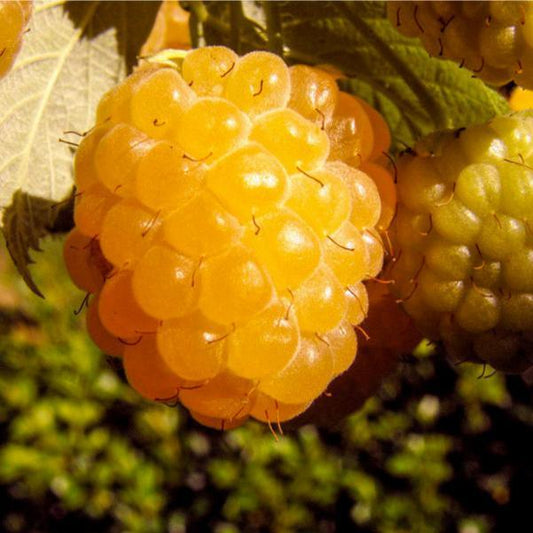 Sold out
Sold out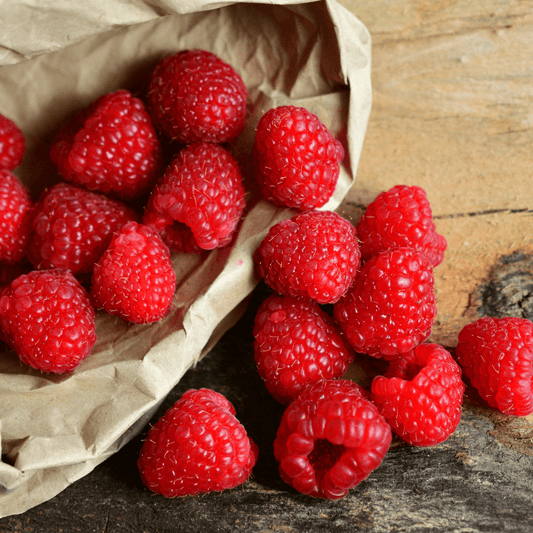 Sold out
Sold out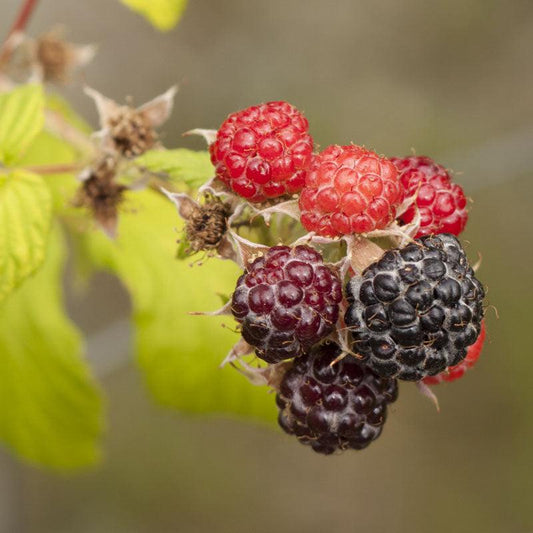 Sold out
Sold out

